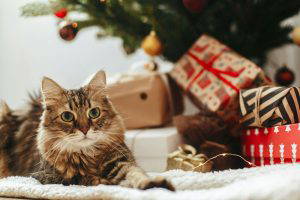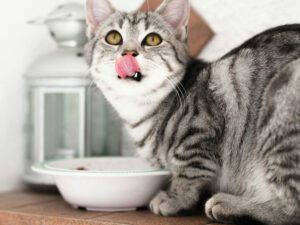Indoor cats have a unique set of nutritional needs compared to their outdoor counterparts. Since they lead more sedentary lifestyles and aren’t exposed to the same environment as outdoor cats, it’s important to tailor their diet to ensure they remain healthy and happy.
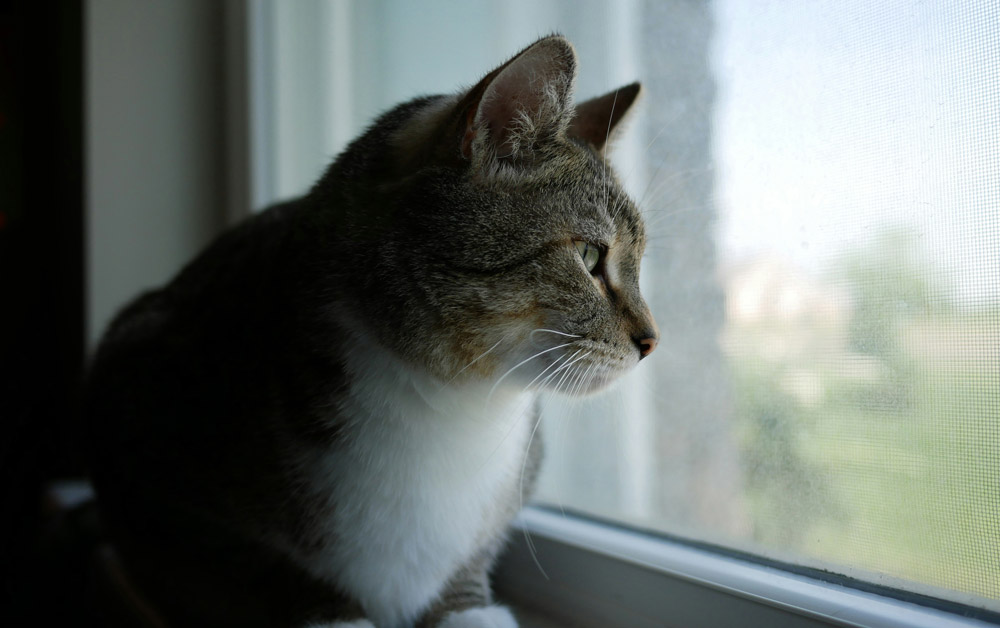
Why Indoor Cats Have Different Nutritional Needs
The most significant difference for indoor cats is their activity level. Indoor cats tend to be less active, which can lead to weight gain if their diet isn’t carefully monitored. Alongside their lower activity levels, indoor cats may also face unique challenges, such as hairballs due to grooming and less natural stimulation, which can affect their digestion and overall well-being.
Key Nutritional Requirements for Indoor Cats
- Controlled Calories: Since indoor cats burn fewer calories than outdoor cats, it’s essential to feed them a diet with balanced, controlled calories to prevent weight gain. Obesity is one of the most common issues for indoor cats, and a diet with moderate fat content is key.
- High-Quality Protein: Like all cats, indoor cats need a diet rich in animal-based protein. Look for cat food with real meat, such as chicken or fish, as the primary ingredient. Protein is essential for muscle maintenance and overall health.
- Fibre for Digestion: Many indoor cats struggle with hairballs due to frequent grooming. Adding fibre to their diet, from sources like beet pulp or pumpkin, can help support digestion and reduce hairball formation.
- Essential Fatty Acids: Omega-3 and Omega-6 fatty acids are important for maintaining a healthy coat and skin, especially for indoor cats that may not get the same environmental exposure as outdoor cats. These fats also support brain function and reduce inflammation.
- Taurine: Like all cats, indoor cats need taurine, an essential amino acid that supports heart and eye health. This should be included in their daily diet to avoid deficiencies.
- Moisture Content: Many indoor cats tend to drink less water than they need, which can lead to urinary tract issues. Wet food can help increase moisture intake and support overall hydration.
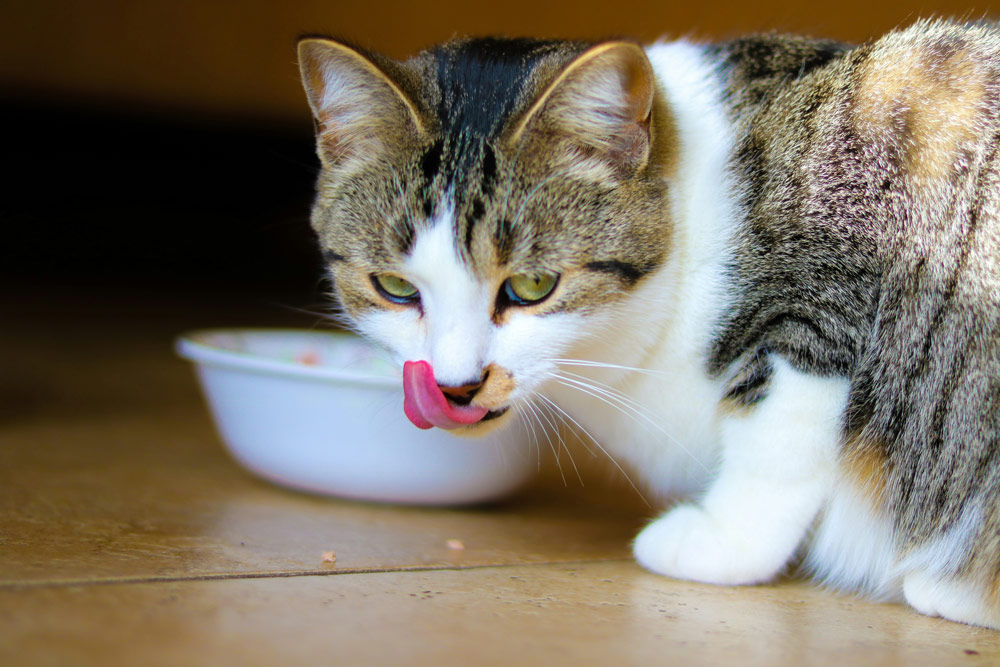
Special Considerations for Indoor Cats
- Weight Management: Due to their lower activity levels, it’s crucial to feed indoor cats portion-controlled meals. Using a combination of wet and dry food, or opting for food specially formulated for indoor cats, can help with weight control.
- Preventing Hairballs: If your indoor cat struggles with hairballs, consider choosing food that includes added fibre to aid digestion. Regular brushing and hydration also help reduce the incidence of hairballs.
- Mental Stimulation: While not directly related to nutrition, mental stimulation is important for indoor cats. Puzzle feeders or interactive toys can help encourage activity and reduce boredom.
Our veterinary practice offers tailored advice and nutrition plans as part of our in-house health plan to ensure your indoor cat stays fit and healthy. If you’re unsure about the best food for your feline friend, don’t hesitate to get in touch.
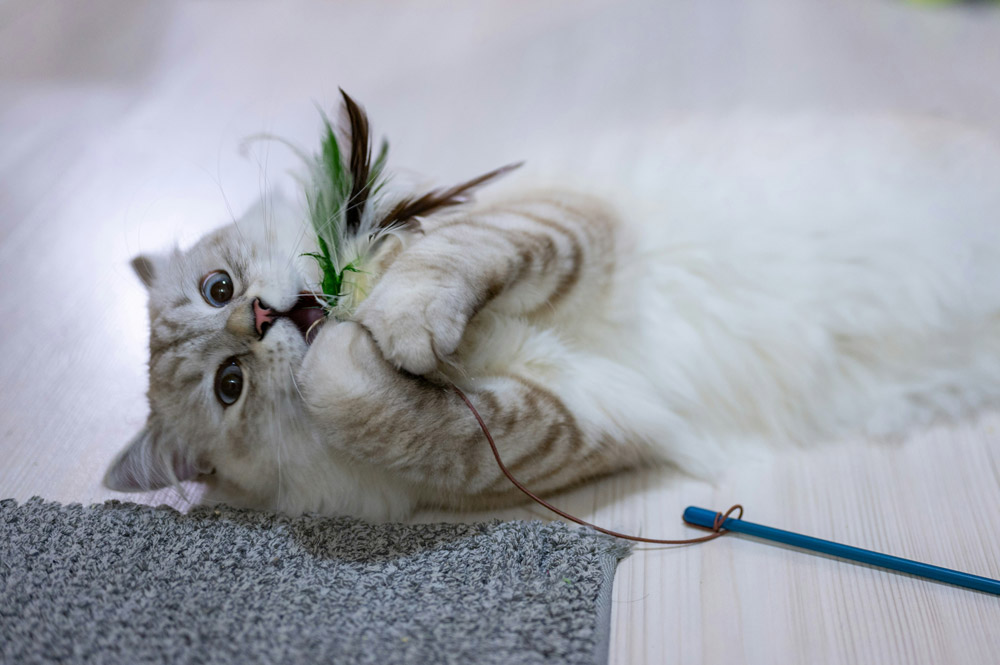
Top Tips for Feeding Indoor Cats:
- Opt for food that’s formulated for indoor cats with lower calorie content.
- Ensure their diet is rich in high-quality protein from animal sources.
- Mix wet and dry food to support hydration and overall health.
- Introduce fibre to help prevent hairballs.
- Keep an eye on portion sizes to prevent weight gain.
Indoor cats have unique needs, and providing the right nutrition is key to keeping them healthy. At Ocean Vets, we’re here to offer expert advice and create tailored nutrition plans for your pet.
Join our Ocean Paws Plan for regular care and amazing discounts – making sure your indoor cat is getting the right care it needs!

